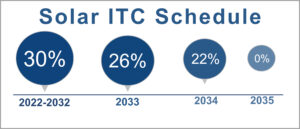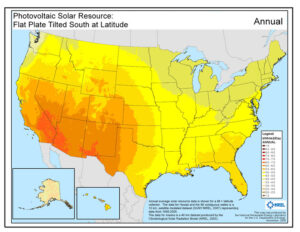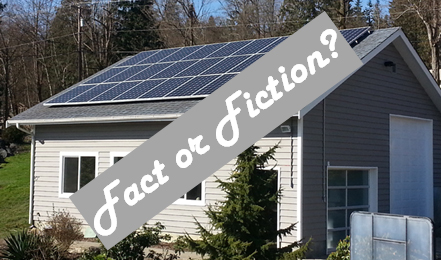5 Common Misconceptions About Solar
5 Common Misconceptions About Solar
1. All solar systems provide power when the electricity grid goes down.
FALSE – Many solar systems, most in fact, do not provide power when the electricity grid goes down. This doesn’t have to be the case! Solar systems with battery backup (grid hybrid solar) can provide power while the grid is down. Make sure to ask us about emergency backup power – with and without solar – if you want electricity even during grid outages.
2. Solar is just too expensive.
FALSE – Solar is more affordable than ever before and makes a great investment. The national average for an installed solar system is just $20,000 before tax incentives, like the 30% federal solar income tax credit. Not only do you then get free electricity, you also increase the value of your property and receive tax incentive.
before tax incentives, like the 30% federal solar income tax credit. Not only do you then get free electricity, you also increase the value of your property and receive tax incentive.
And the return on an investment for solar frequently beats a stock market investment. But unlike the stock market, solar is a guaranteed investment. While the market can fluctuate based on any number of factors, your solar system will always produce valuable electricity and increase your home’s market value. If upfront cost is an issue, many lenders now have 0-down options to finance solar systems to allow you to start investing with low to no out of pocket cost.
3. I will lose my solar investment if I sell my home.
FALSE – The solar premium for homes is now a well-documented benefit of going solar. Depending on which study you look at, homes with solar sell 17-22% faster and for $20,000+ more than non-solar homes. You may see an even greater benefit depending on your area and the cost of electricity in your region.
4. Solar doesn’t work where I live.

FALSE – Solar electricity works almost everywhere! Solar panels even work without direct sunshine. Solar radiation through clouds still reaches the panels, even in colder climates where the winters aren’t very sunny. Cold temperatures conduct electricity better than warm temperatures, so solar panels in cold climates are more efficient and produce more electricity per hour of sunlight than their sun-drenched (but much warmer) cousins. Many Nordic countries even put solar panels near the Arctic circle!
5. Solar will damage my roof.
FALSE – Reputable solar installers have extremely low rates of mishaps and use multiple products throughout the installation process to prevent damage. After they are installed, solar panels protect the roof underneath them from damage. Solar panel systems are not heavy enough for their weight to pose any risk to the roof that was built to code, and installers use specialty anchoring equipment—so the system stays secure. All of this means that no matter what type of roofing you have, solar can be safely installed.

